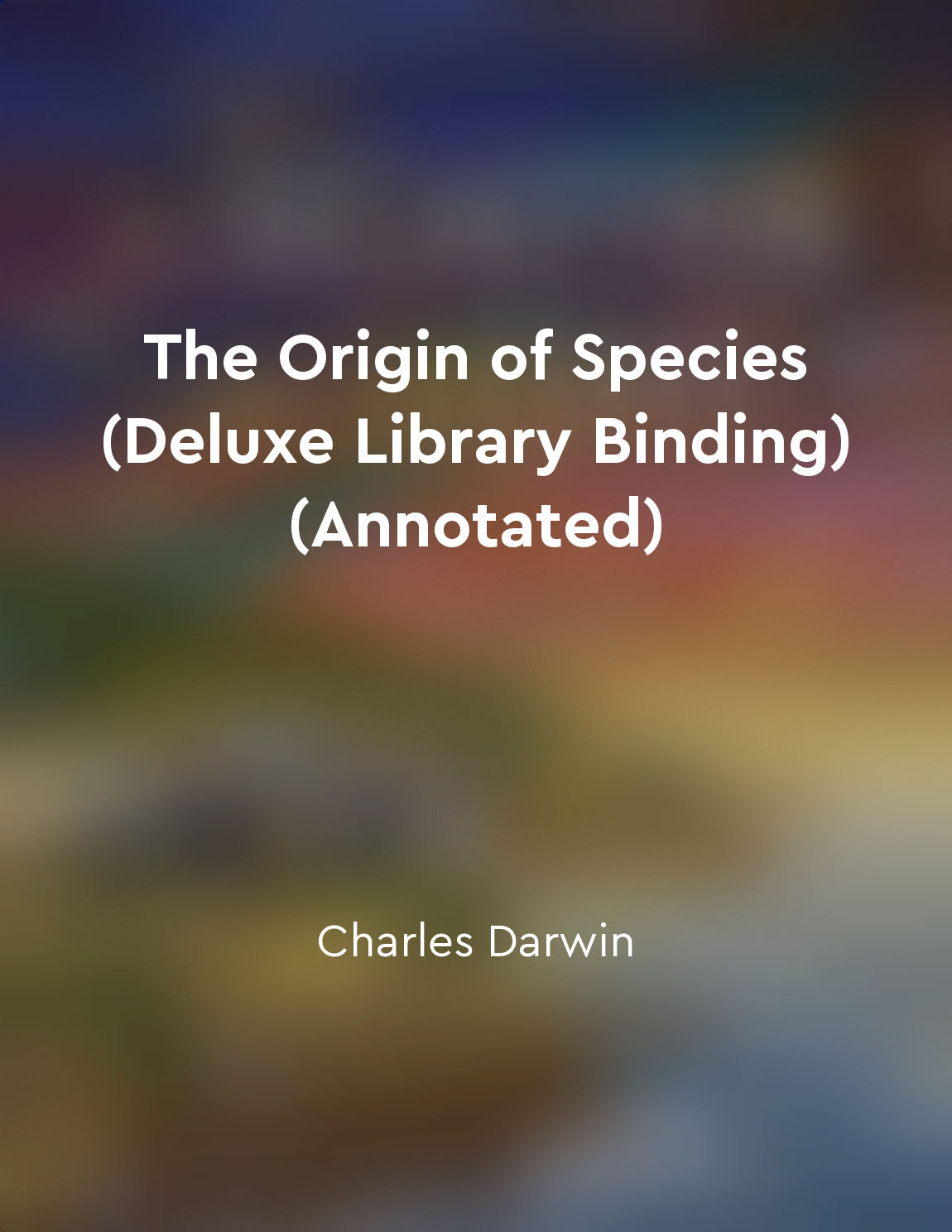Gradual changes lead to new species from "summary" of The Origin of Species (Deluxe Library Binding) (Annotated) by Charles Darwin
The process by which new species arise is a result of gradual changes accumulating over time. These changes, often imperceptible in the short term, can lead to significant differences in the long run. It is through this gradual transformation that new species emerge, distinct from their ancestors. These changes can occur in various ways, such as through natural selection or genetic mutations. Natural selection, a key mechanism in the process of evolution, favors traits that enhance an organism's chances of survival and reproduction. Over many generations, these advantageous traits become more prevalent in a population, leading to the formation of new species. Genetic mutations, on the other hand, introduce new variations into a population's gene pool. While most mutations are neutral or harmful, some can be beneficial and contribute to the diversity of life. Over time, these mutations can accumulate and drive the formation of new species through a process known as speciation. The concept of gradual changes leading to new species is supported by a wealth of evidence from various fields, including paleontology, comparative anatomy, and molecular biology. Fossil records show a gradual transition from ancient species to their modern descendants, providing a glimpse into the evolutionary process. Comparative anatomy reveals similarities and differences among species, highlighting the gradual changes that have occurred over time. Molecular biology, with its focus on DNA sequences and genetic relationships, further confirms the interconnectedness of all living organisms and the gradual divergence that has led to the vast diversity of life on Earth.- The concept of gradual changes leading to new species is fundamental to our understanding of evolution. It highlights the intricate and interconnected nature of life, where small changes over time can result in the emergence of entirely new forms. This process underscores the dynamic and ever-evolving nature of the living world.


